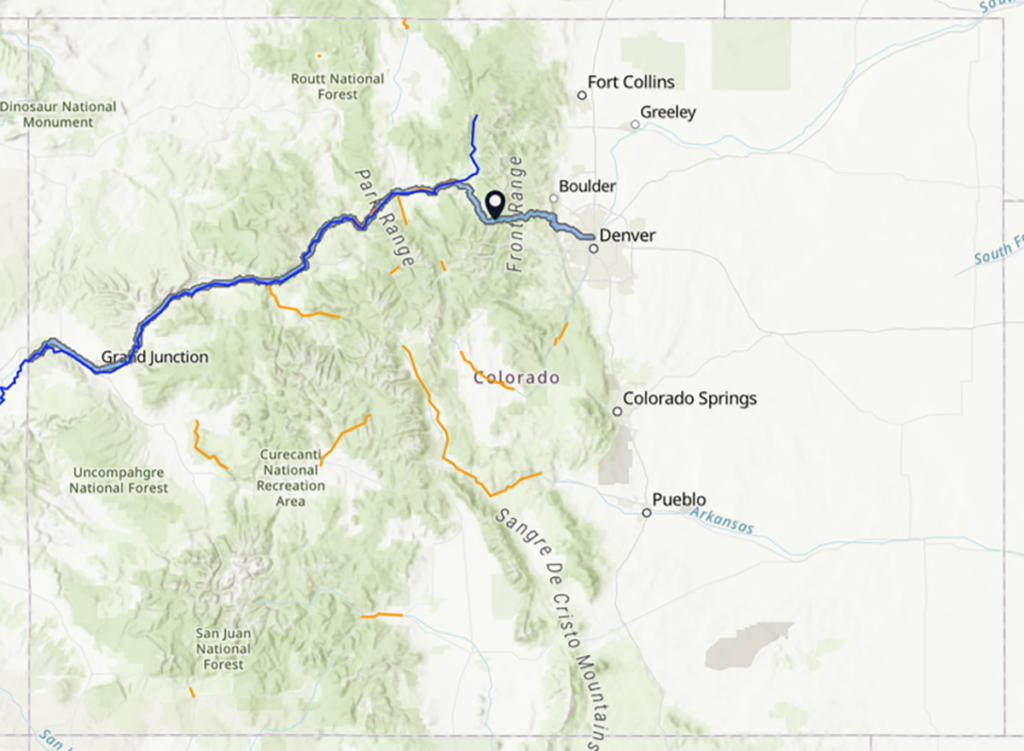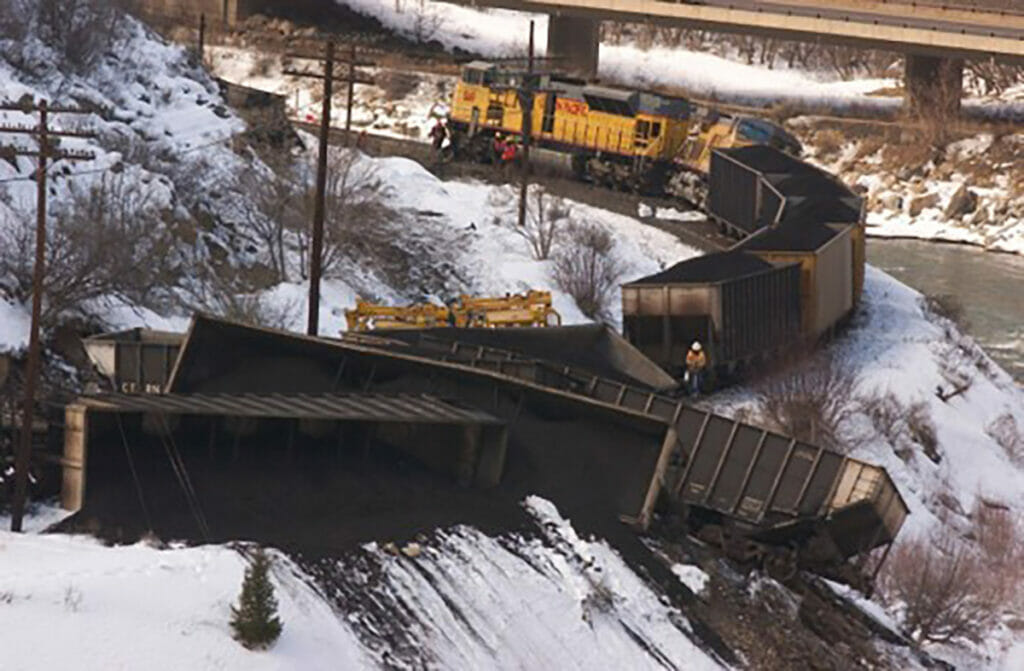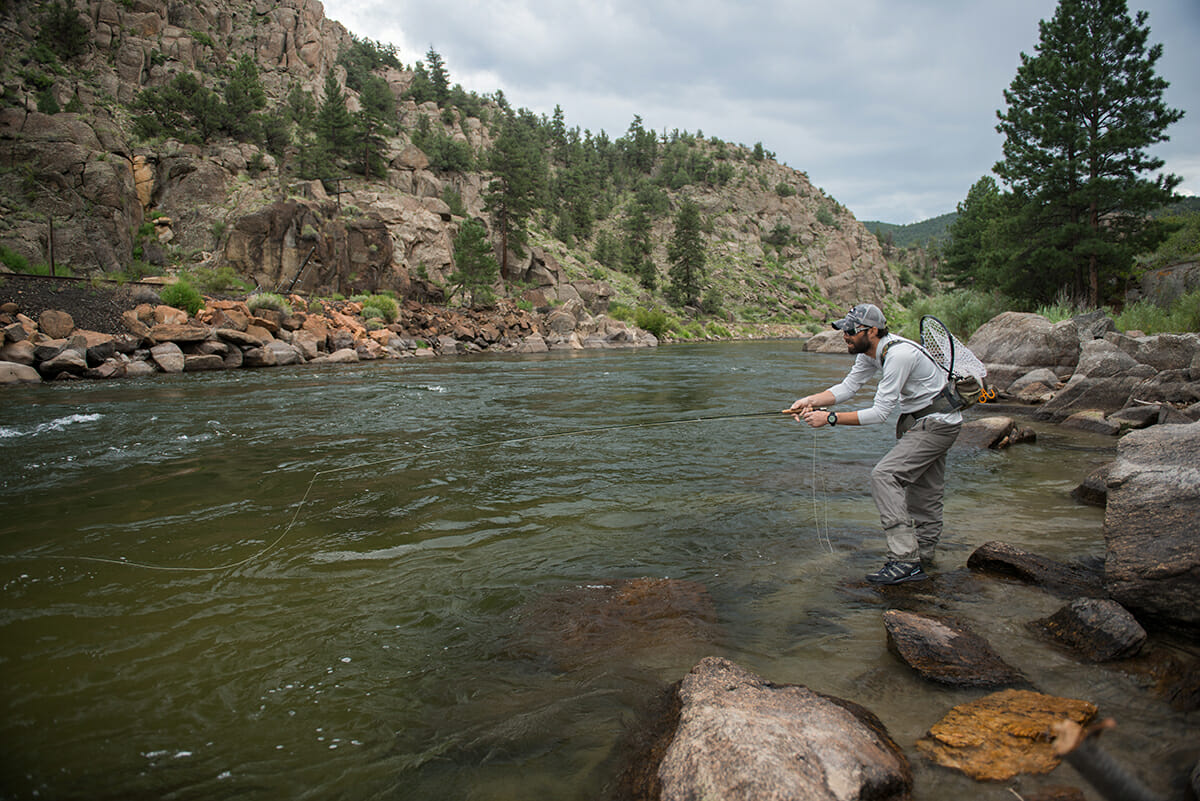Proposed Uinta Basin Railway Poses Threat to the Gold Medal Colorado River
The Colorado River is one of America’s iconic waterways. Even those living outside its namesake state are likely familiar with its importance, as it provides drinking water for some 40 million people across seven states and 30 Tribal Nations. Undoubtedly, the greatest attraction along the river’s course is the Grand Canyon in Arizona, but here in Colorado it is home to some of the best trout fishing in the state, with around 40 miles designated as Gold Medal trout fishing water – the state’s premier fisheries designation.
Unfortunately, what some have termed “America’s most endangered river” faces a new threat. A coalition of Utah counties known as the Seven County Infrastructure Coalition has proposed construction of the Uinta Basin Railway (UBR), an 88-mile rail line across northern Utah connecting the oil fields in the Uinta basin to existing rail lines in Colorado. Once in Colorado, the proposed route would bring up to 350,000 barrels per day of waxy crude oil along 100 miles of the Colorado River on the way to Denver and eventually to refineries in Texas.

The Surface Transportation Board was the federal agency in charge of performing the Environmental Impact Statement (EIS) for the UBR project. After completing an EIS reviewing alternative lines and impacts, the Surface Transportation Board allowed the project to move forward. However, several Colorado municipalities and conservation groups noted that the EIS only accounted for the immediate impacts of the project in Utah and failed to address the potential downline consequences of increased rail traffic and the potential for spills after crossing into Colorado, so they filed a lawsuit challenging the validity of the EIS. While Trout Unlimited is not involved in the legal dispute, we do support the plaintiffs’ stance that a more comprehensive EIS should be completed before the project progresses.
To be clear, energy development and conservation need not be mutually exclusive. Trout Unlimited has a long history of working with regulatory agencies and extractive industries to ensure that those activities are done in a responsible manner that protects coldwater habitats. In the case of the UBR project, however, there is just too much risk to the Colorado River and the Gold Medal fisheries and communities that rely upon it. With the probability of a derailment doubled and large volumes of waxy crude being carried along the Colorado River, it is likely only a matter of time before an accident results in a significant spill or a wildfire ignition. And with multiple sections of the rail line in Colorado in areas where emergency access for containment or cleanup will be difficult at best, that is a risk we cannot afford to take. Further, the project’s proponents have stated that not all of the oil they will transport will go to Colorado, but rather to points south and east on the national rail network, which prompts the question: why not avoid the Colorado River altogether?

“The chances of derailment in Colorado along these windy canyons goes way up,” said Kirk Klancke, president of the Colorado River Headwaters Chapter of Trout Unlimited. “East Palestine, Ohio, didn’t give us any confidence, either.”
The Biden administration seems willing to take a gamble on the potential consequences of the UBR project. Trout Unlimited is not. We are echoing numerous conservation organizations, counties, towns, and Colorado elected officials – including a new letter to Secretary of Transportation Pete Buttigieg from U.S. Representatives Brittany Pettersen, Diana DeGette, and Jason Crow earlier this week – saying that this project should not proceed until a supplemental EIS has been conducted that fully and adequately evaluates the risks this project poses to Colorado and adopts alternatives that avoid or fully mitigate those risks, such as routing oil trains along lower-risk lines.
In light of the recent bridge collapse and train derailment into the Yellowstone River earlier this week, Trout Unlimited is reiterating our position in Utah, Colorado, and Washington, D.C. to make sure that these concerns are addressed before the UBR project progresses any further. Stay tuned.



